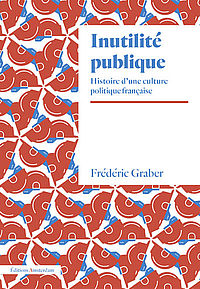Environment, climate, energy: Societies and their ecological challenges
Responsible: Isabelle Desportes, Judith Nora Hardt
Co-organization: Bastien Fond, Frédéric Graber
The research focus (Pol 5) deals with socio-ecological transformation processes from a transdisciplinary perspective. The project focuses on the actors, objects and dynamics of environmental policy and climate governance; the analysis, discussion and elaboration of future scenarios; and on the construction of environmental and climate issues as socio-political problems.
The “Environment, Climate, Energy” research unit gathers researchers whose work focuses on ecological issues. It offers an intellectual cluster where various perspectives from the humanities and social sciences are brought together, as well as interacting with natural sciences. In so doing, it both aims at developing new interdisciplinary approaches to environmental questions, and at providing innovative insights to the actors involved in green initiatives.
The topics and subjects considered range from climate policy and environmental justice to socio-ecological transformations and sociotechnical matters related to energy transition and climate change mitigation. We thus address concerns like the geopolitical consequences of global warming and competition for natural resources, which imbalance political relations and impact war and peace, as well as philosophical and literary perspectives on the environment, and debates surrounding the definition of our time as a new geological era called the “Anthropocene” for instance.
The research unit does not approach environmental and climate challenges as technical issues having only to do with natural sciences. On the contrary, we promote a holistic approach where all aspects of our societies are analysed in order to provide a better understanding of the consequences of human activities on the environment. In so doing, our aim is to examine past and present relations to nature, so as to comprehend how various communities and cultures have been dealing with all kinds of environmental problems over time. Amongst other issues, we study: climate policy actors, knowledge production and decision-making; the scenarization of energy futures; the dynamics of ecological movements; the entanglement of power and security policies with environmental policy; and the history of environmental thought.
[Translate to English:] Exkursion Stadtnaturausflug
[Translate to English:] Sovereignty and Resilience: The Politics of Climate Change in the South Pacific
[Translate to English:] Social-ecological transformation conflicts and the importance of economic growth
[Translate to English:] Nuclear heritage: Uranbergbau in Australien, Afrika und Ostdeutschland
[Translate to English:] Locusts of Power: Borders, Empire, and Environment in the Modern Middle East
[Translate to English:] Sensibiliser par les ateliers. Regard sur différents dispositifs d'éducation au climat
[Translate to English:] Konsum und Habitus - zur Genealogie eines Konsumtionsmodells bürgerlicher Freiheit im 19. Jahrhundert
[Translate to English:] Towards a Commons of Urban Microclimates: Thermal Communities in Berlin
[Translate to English:] Bevölkerung, Natur, Kapital: Zu den Theorien von T. R. Malthus, K. Marx und ihren Epigonen
[Translate to English:] Building Support for Climate Policy
Inutilité publique. Histoire d ́une culture politique française (éditions Amsterdam, 2022)

17. April 2024 - Buchvorstellung
„Inutilité Publique“ ( F.Graber, 2022, Editions Amsterdam) présenté par l'auteur, Frédéric Graber (CNRS/CMB)
In Kooperation mit I. Schwerpunkt
Les grands projets d’aménagement sont une cible privilégiée des mouvements écologistes. Dénoncés comme « inutiles et imposés », ces projets font l’objet de multiples résistances. Pourtant, la notion d’utilité publique est au cœur de leur légitimation par les pouvoirs publics français. Car aux yeux de l’administration, l’utilité publique ne renvoie pas à l’idée générale de bien commun, c’est un principe au nom duquel il est juridiquement possible de transformer l’état du monde, en sacrifiant certaines populations et environnements. La conformité ou non d’un projet à ce principe résulte d’une procédure administrative ancienne et méconnue, l’enquête publique, mise en scène par excellence du consentement de tous.
[Translate to English:] Multiple Crises. Covid-19 and the Entanglements of Public Health, Security and Ecology in Europe
[Translate to English:] Das Verbotstabu - Hindernis für eine Nachhaltigkeitstransformation
[Translate to English:] Moving Offshore: discussing French wind power acceleration policy
The Wars of the Colorado Potato Beetle in 20th Century Europe
13 Dezember 2023 - Conférence
Depuis la découverte des premiers foyers de doryphores près de Bordeaux en 1922 jusqu’à leur dispersion à travers l’Union soviétique à la fin de la guerre froide, le ravageur le plus célèbre du XXe siècle a suscité un grand nombre de réactions, d'enquêtes scientifiques et de mesures de lutte de la part des sociétés européennes. La guerre occupe une place importante dans l'histoire du doryphore en Europe. Elle a créé les conditions environnementales nécessaires à une circulation rapide du doryphore et a déterminé la manière dont les États et les sociétés ont lutté contre le ravageur. De la France à l'Allemagne, de la Pologne à l'Ukraine, le doryphore de la pomme de terre a mobilisé l'attention d'un large éventail d'acteurs, des gardes-frontières aux diplomates et agents des services secrets, des experts agricoles et scientifiques militaires aux agriculteurs et population civile générale. Sur la base d'un large éventail d'archives provenant de France, d'Allemagne, d'Ukraine et de Russie, Marin Coudreau et Margot Lyautey analysent l'histoire de la circulation du doryphore de la pomme de terre à travers l'Europe, d'ouest en est, dans le contexte des mobilisations de la guerre totale, de la planification de la guerre environnementale et des activités scientifiques top secrètes de la guerre froide.
[Translate to English:] Ideas and Prospects for Cooperation: Towards a French-German climate change research network in social sciences and humanities
[Translate to English:] Climate politics and activism - ways to a just zero-emission-society in Berlin, Paris and Kyiv
[Translate to English:]
24 November - Workshop
The current wars and conflicts are justifiably attracting a lot of attention, but threaten to push the climate crisis into the background. How can science and climate activism in the three metropolitan regions mutually support each other in order to move politics towards compliance with the Paris Agreement in the current very difficult political environment? The workshop explores different ideas how to think about transforming our three metropolitan-regions in a just way.
Inclusive transformation: How can inclusive just cooperations look like and how can they be organized in the future?
Common ground: Is it possible for us to find a common ground and common principles for a set of values and action methods for the transformation needed so that there could be a European movement of researchers, activists and practitioners taking stance for a sustainable society against the status quo?
Future collaboration: Looking back and forward - How could we work together in the future building one strong European force for change built upon the inclusive principles?
Organized by:
Dr. David Fopp

